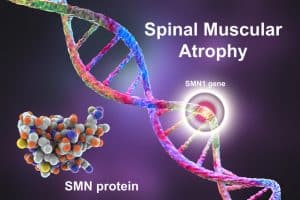NICE recommends Sanofi, Amgen cholesterol drugs
pharmafile | May 6, 2016 | News story | Medical Communications, Sales and Marketing | Amgen, Draft Guidance, NHS, NICE, Repatha, Sanofi, cardiovascular disease, cholesterol, final draft guidance, high cholesterol, praluent, recommendation, treatment
The National Institute for Health and Care Excellence (NICE) has issued final draft guidance recommending two new drugs for the treatment of patients with cholesterol disorder.
The draft guidance only recommends the use of the drugs when they are provided at the discounted price agreed with the discounted price agreed with the companies.
Praluent (alirocumab), made by Sanofi and Regeneron, and Repatha (evolocumab), made by Amgen, have been indicated for adults with primary hypercholesterolaemia or mixed dyslipidaemia to help reduce their risk of cardiovascular disease.
The drugs are specifically targeted for people with these conditions who cholesterol levels are not adequately controlled using other treatments, such as statins.
Patients with either of these conditions have an increased risk of cardiovascular disease because higher cholesterol levels accelerate the build-up of atherosclerosis, or fatty deposits in the arteries. Those with the inherited form of the disease have the risk of cardiovascular disease increase by up to 50% for men, and 30% for women.
The NICE committee observed data that Praluent reduced levels of LDL-cholesterol, what they call “bad cholesterol”, by up to 62% compared with placebo and up to 40% when compared with other treatment ezetimibe. Similar results were observed for Repatha.
Professor Carole Longson, director of the NICE centre for health technology evaluation, says: “We are pleased to be able to recommend alirocumab and evolocumab. People with hypercholesterolaemia or mixed dyslipidaemia… have very few treatment options.
“The committee concluded that both drugs are effective in reducing levels of ‘bad cholesterol’. However, both drugs are relatively expensive, costing over £4000 per patient per year compared with about £350 for ezetimibe. Therefore the draft guidance recommends alirocumab and evolocumab as a cost effective use of NHS resources only with the discounts agreed with the companies and only for people with hypercholesterolaemia or mixed dyslipidaemia whose cholesterol is still not under control despite making changes to their lifestyle and taking other cholesterol-lowering drugs.”
NICE initially rejected Praulent due to insufficient data proving its efficacy, but the updated data they have received has certainly changed their mind. Both of these drugs were also at the centre of a recent court case, where a court ruled that, with Praluent, Sanofi and Regeneron had infringed on Amgen’s US patent for Repatha.
Upon the announcement of the news, Pharmafocus caught up with Dr Tunde Falode, Director, Cardiovascular Division, Sanofi in the UK
Q: NICE originally decided not to recommend Praluent in draft guidance. What changed in the data provided between then and now that you think changed their decision to recommend the drug?
A: Sanofi’s NICE submission for Praluent focused on high risk patients with raised low density lipoprotein-C (LDL-C) levels who are inadequately controlled on maximally tolerated current therapy. The NICE Committee recognised that the company had focused on those patients who have the greatest cardiovascular risk, which is considered to be in line with how clinicians would use Praluent. The Committee considered that the patient subgroups as defined by the company were appropriate and relevant.
Sanofi believes Praluent provides a solution to an unmet need as not all patients are able to achieve adequate LDL-C control on existing therapies, either due to insufficient efficacy with current maximal dose of statin-based therapy (with or without ezetimibe) or contraindication/inability to tolerate statins. Beyond statins and ezetimibe, there are limited alternative effective therapeutic options for patients to effectively lower LDL-C.
The licence of Praluent is based on data from 10 pivotal Phase 3 ODYSSEY trials. Results showed consistent reductions in LDL cholesterol for Praluent compared to placebo or ezetimibe, when added to current standard-of-care.2 In the ODYSSEY LONG TERM clinical trial where people with raised cholesterol levels and at high risk of developing a cardiovascular event were treated with Praluent 150 mg every two weeks, Praleunt was able to reduce ‘bad’ cholesterol by 61% at week 24 versus an increase of 0.8% for the patients on placebo.
Q: Sanofi indicates in their Q1 financial results that sales of Praluent were limited due to current payer restrictions. How do you expect take-up of the drug to improve with this NICE decision?
A: The NICE FAD recommendation for Praluent, once confirmed as final (TAG) will represent national guidance from NICE to the NHS for how Praluent should be used. We therefore expect appropriate uptake for Praluent to follow in line with the Guidance.
Sanofi expects that high risk patients which have been included in the NICE’s recommendation will have access to this innovative treatment from the summer.
Amgen have also received a recommendation for their similar drug, Repatha. Both are said to have the potential to reach billions in sales in the next few years. What differentiates your offering from Amgen’s?
Although there are currently no head-to-head trials to compare the two PCSK9 inhibitors. Praluent is the only approved medicine in this class that is available in two different starting strengths for injection every two weeks: 75 mg and 150 mg. If a patient’s low-density LDL-C is not adequately controlled on the lower strength of Praluent, the clinician has the option of prescribing the higher strength 150 mg dose.
However, if a greater than 60% reduction in ‘bad cholesterol’ is required the clinician can go straight to the 150mg dose.
Sanofi is pleased with today’s positive recommendation from NICE for Praluent as it will allow healthcare professionals to better manage their patients at a significant level of risk of cardiovascular disease whilst also giving them the flexibility to meet the needs of their individual patients.
Sean Murray
Related Content

Digital mental health technologies – a valuable tool in supporting people with depression and anxiety
The potential benefits of digital mental health technology for managing depression, anxiety and stress, together …

A community-first future: which pathways will get us there?
In the final Gateway to Local Adoption article of 2025, Visions4Health caught up with Julian …

The Pharma Files: with Dr Ewen Cameron, Chief Executive of West Suffolk NHS Foundation Trust
Pharmafile chats with Dr Ewen Cameron, Chief Executive of West Suffolk NHS Foundation Trust, about …





